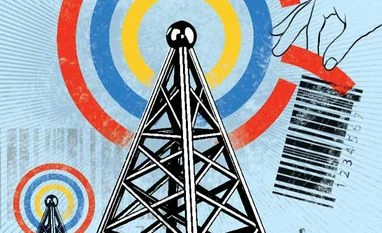In a note, India Ratings wanted the government to give priority to reviving investment, while focusing on revenue-augmenting measures to prune fiscal deficit. It believed that the government might raise service tax rate to 16 per cent from the current 14 per cent.
There is a possibility of the government making a windfall gain in non-tax revenue if telecom spectrum sale takes place in FY17. This might help the government adhere to the 3.5 per cent of GDP fiscal deficit target for the year, despite implementing the pay commission award.
More From This Section
| HELPING THE FISCAL MATH |
|
"Having attained macro economic stability, though largely due to the collapse of global commodity prices, especially oil, the top priority should be revival of the investment cycle," said the rating agency, part of the Fitch group.
It said capital expenditure in FY16 rose 25.5 per cent over the revised estimate in FY15 but as a percentage of GDP, was stuck at 1.7 per cent. It needed to be at two per cent.
"With two monsoon failures, rural distress has increased. Although a number of schemes such as 'soil health card scheme', agri-tech infrastructure fund, a technology driven protein revolution, a price stabilisation fund, and the Prime Minister's irrigation scheme, with a focus on micro irrigation and watershed development, are at various stages of implementation, the government cannot relax on this front," it added.
For augmenting revenue, enhancing tax compliance and reducing disputes, the best way is to implement the proposed Direct Taxes Code (DTC) and the national goods and services tax (GST) at the earliest, it said. "As the fate of DTC is not known, implementing the GST appears to be the only way out for accelerating tax revenue."
Although IndRa would like a firm commitment about introduction of GST in the FY17 budget, its destiny is likely to be determined by politics than economics, it conceded.
India Inc will watch for the fiscal stance, on whether the government chooses to loosen its purse or continue to consolidate, it felt. If the government decides to increase spending, will it be rightly channelised into capital investments remains a challenge. "The budget will need to focus on the commodity-driven sectors by providing protection measures, since these are stressed due to the collapse in global demand and oversupply," it said.
Public sector banks (PSBs), backbone of the economy, require a well-defined path of recapitalisation till 2019. IndRa's calculation shows PSBs would need Rs 3.7 lakh crore of infusion in FY17-19 for capital adequacy under the Basel-III norms.
IndRa, therefore, believed higher budgetary support would be critical for the health of PSBs. Particularly when their internal accruals are low, equity valuations have eroded and the risk of further slippage on exposure to highly levered companies is high.
It says it will watch for additional allocations to the Mudra Bank or expansion of the latter's scope. \"We also eagerly await details on the implementation of bank board bureaus, announced last year,\" it said.
On sector-specific expectations, it said the infrastructure sector would be a priority for the government. The focus would be on deepening the infrastructure debt market, providing a larger role to infrastructure debt funds and India Infrastructure Finance Company, a push to activate infrastructure investment trusts and reworking the private-public partnership structure to make it more viable.
)